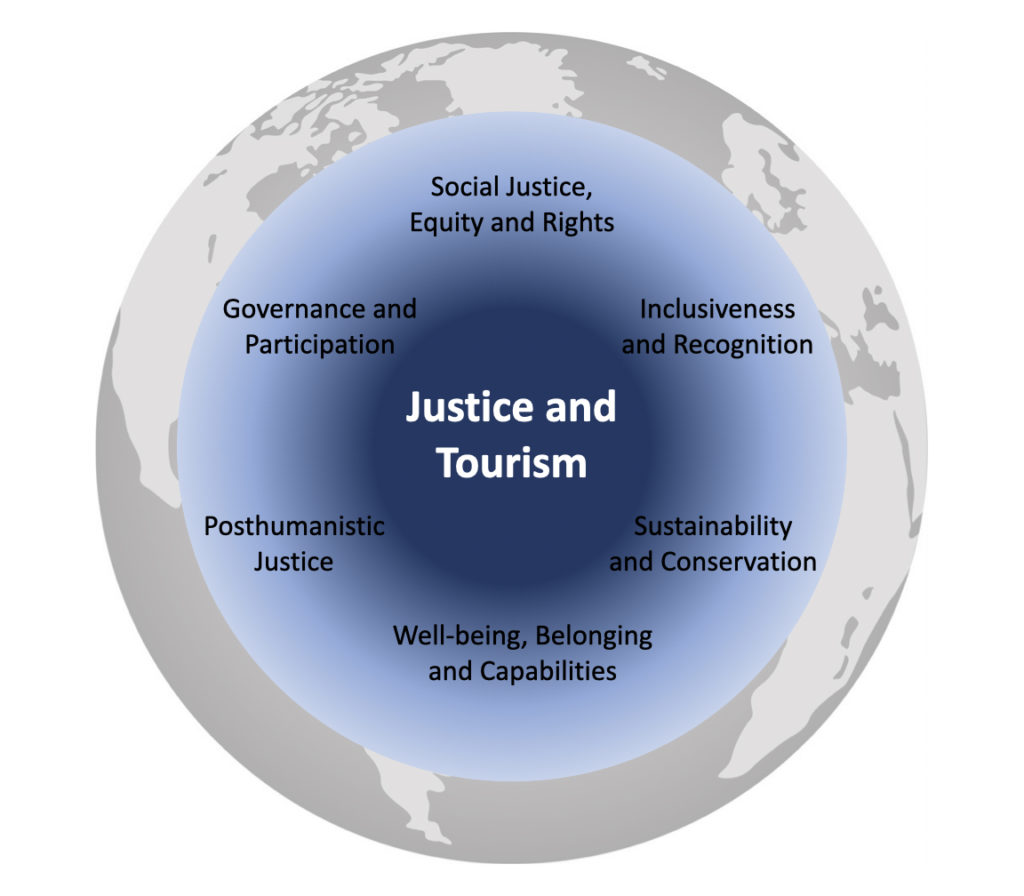Towards a New Platform for Justice and Ethics
Tazim Jamal, Department of Recreation, Park and Tourism Sciences, Texas A&M University
James Higham, Department of Tourism, University of Otago
The World Health Organized declared a global pandemic on 11 March, 2020. Cruise lines, air travel and mobilities of goods and services came to a standstill as border closures, lockdowns and other containment, mitigation and, in some cases, elimination strategies were attempted. Tourism is deeply implicated in these challenges, as travelers have carried the virus far and wide. Infections in one place mean trouble for many connected to it, whether through trade or social-cultural relations. COVID-19 has lain bare the critical need for global coordination of tourism as well as mechanisms for local and global justice as human rights issues and entrenched inequalities become evident.
In light of the unprecedented COVID-19 crisis, many are calling for new strategies and approaches for environmentally and socially responsive tourism. Will destinations struggling for swift recovery pay attention to the climate crisis and develop restorative measures towards ecological and social resilience? Will it be ‘business-as-usual’, racing towards a return to overtourism and neoliberal globalization? Or will places look towards degrowth and pluralistic approaches to individual as well as communal well-being, rather that economic growth and other modernist notions of ‘progress’ and ‘development’? What is ‘just’ and ‘sustainable’ tourism in an Anthropocene where climate change and pandemics are interwoven with other global issues such as large-scale migrations and refugees, water and food crises, geopolitical conflicts, systemic oppression of minority groups, and acts of domestic and global terrorism?
The pandemic has emphasized our common humanity and societal vulnerabilities in a mobile world. Deep inequities and historical injustices have been made evident, such as global inequalities entrenched in low-wage, poorly supported service industry, and increased risk with little social support for high risk vulnerable groups, including oppressed and minority groups subject to systemic racism. Vulnerable groups seek resilience and safety, not just from the pandemic, but also from the extreme weather events and rising sea levels that reflect the climate ‘crisis’, which are exacerbating deeply embedded historical injustices often stemming from colonialism and imperialism (hence the worldwide social movements stemming from Black Lives Matter).
In times of such enormous upheaval and uncertainty justice emerges as a key principle to guide responsible tourism development and policy and 2021 offers hope and healing from the ravages of the pandemic. The special issue on “Justice and Tourism” that we have guest edited for the Journal of Sustainable Tourism is a timely in response to these unprecedented times. It presents a range of perspectives on justice and tourism through practical cases and theoretical insights provided by scholars researching in a range of disciplines and geographical contexts.

Figure 1 above frames some emerging principles and approaches to justice and tourism that the special issue authors address, including social justice, equity and rights; inclusiveness and recognition; sustainability and conservation; well-being, belonging and capabilities; posthumanistic justice; and governance and participation. Not surprisingly, they weave through the articles in the special issue. Numerous other principles are nested within these overall categories, such as respect, care, autonomy and sociality. The boundaries are invisible and porous in this emergent picture of justice and tourism. Figure 1 moves away from the use of boxes, solid lines and arrows, so typical in the presentation of conceptual models. Instead, the concepts and approaches that emerge in this special issue, as illustrated in the figure, should be viewed from a holistic and interrelated perspective rather than from an either/or binary standpoint.
The two volumes of the special issue in Journal of Sustainable Tourism Vol. 29 (2,3) present a range of perspectives, practical cases and theoretical discussions that call for a new platform for tourism and sustainability. The authors approach this interrelated domain from their situated perspectives, their different disciplinary or inter-/trans-/post-disciplinary viewpoints. They illustrate that issues of justice are interwoven with social-ecological worlds and everyday life in the places and spaces of travel and tourism. Important concepts and considerations emerge through the struggles, challenges and experiences of the authors as they grapple with critical issues for local-global sustainability and well-being.
In their articles, too, one encounters diverse methodologies and reflexive voices, some sharing tentative propositions, others forwarding firm convictions. They are crucial reminders of the young stage of research in justice and tourism. The picture that emerges is partial and processual, as justice is in the process of ‘becoming’ part of the knowledge base in tourism studies. Inter-/trans-/post- disciplinary approaches to justice and an ethic of care are needed as the various papers in the special issue illustrate.
What a marvelous thing it is to be able to embark on a journey elsewhere, on holiday especially, filled with anticipation, enthusiasm, and perhaps trepidation if it’s the first visit to a different land […] There’s the joy of new conversations, possibly making new friends, and hopefully benefiting local economies rather than exploiting them (buy local!). But it is a chimera, this thing called tourism. It can offer fun, joy, rich existential experiences, ways to contribute constructively to conservation and to individual as well as social well-being. Yet there are also possibilities to wreak thoughtless harm on the destination, the environment, and those who inhabit them (Jamal, 2019).
Tourism has for long proudly proclaimed its ability to facilitate cross-cultural exchange, learning, appreciation of diverse cultures, break down stereotypes, and show that we can become truly cosmopolitan citizens of the world through travels and social exchange. It is good to feel that we are responsible travelers, that we care about the places and people we visit on holiday whom we are sure will welcome us with warm hospitality. That, in some sense, travel makes us better ‘global citizens.’ But what are our cosmopolitan responsibilities as we fly off to some warm tropical island or engage in ‘last chance tourism’ that endangers the very things we seek to experience. Yes, we feel bad about the carbon emissions but we hope to bring desperately needed foreign exchange…if our money stays in the local economy, of course. But does it? How much do the ‘costs’ of travel and tourism outweigh its ‘benefits’—to the planet, to habitats and ecosystems (land and marine) worldwide, to humans and non-human others in the places and spaces in which hospitality and rich experience arise?

The numerous articles in the special issue of justice and tourism in the Journal of Sustainable Tourism underline the need for collaborative research to weave together diverse theoretical insights and knowledge domains to inform the wide range of issues and insights for ‘just’ tourism that demand urgent and rigorous attention in research and practice. The special issue is free to access through to December 31 this year and all of March 2021, leading up to a free mini-symposium on March 26 where you are encouraged to join in discussion with the special issue authors!